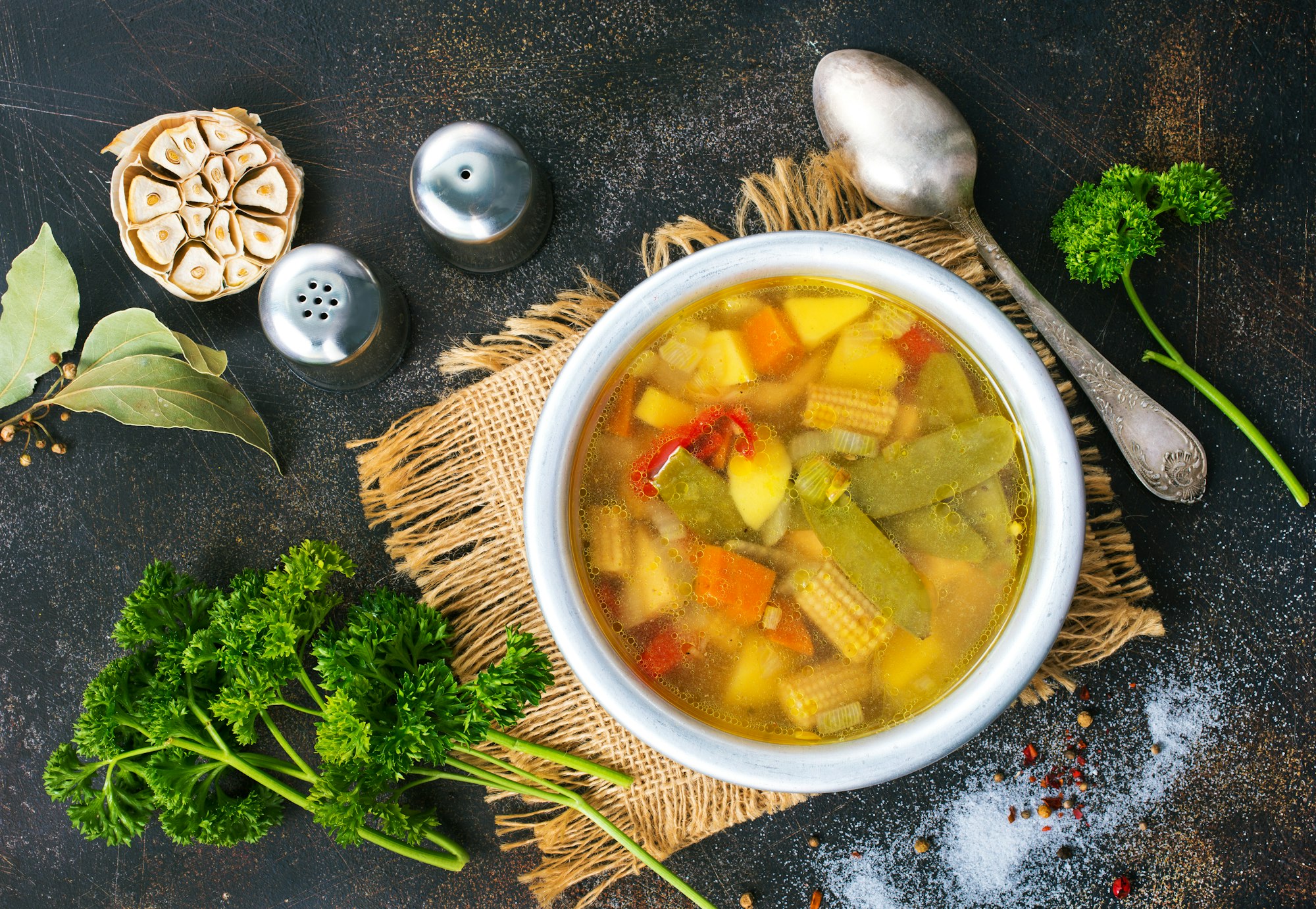The pictures in our articles might not always show exactly what the text is talking about. We use these images to make the article more interesting and eye-catching. They are there to add to the text, but not to replace it or show every detail.
Introduction
Vegetable soup is more than just a comforting bowl of warmth on a chilly day. It's a nutritional powerhouse that packs a punch of vitamins, minerals, and other essential nutrients. This hearty dish has been a staple in cuisines around the world for centuries, and for good reason. Not only is it delicious and versatile, but it also offers a wide array of health benefits that make it a smart choice for anyone looking to improve their diet.
In this comprehensive guide, we'll dive deep into the vegetable soup nutrition facts that make this simple dish a nutritional superstar. From its low-calorie content to its rich array of vitamins and minerals, we'll explore why vegetable soup should be a regular part of your meal rotation. Whether you're a health enthusiast, a weight watcher, or simply someone who enjoys good food, understanding the nutritional profile of vegetable soup can help you make informed decisions about your diet.
Key Takeaways
Before we delve into the details, here are some key points to remember about vegetable soup nutrition facts:
- Low in calories: A typical serving of vegetable soup contains only 55-67 calories, making it an excellent choice for weight management.
- Rich in nutrients: Packed with vitamins A, C, and various minerals, vegetable soup provides a nutrient-dense meal option.
- High in fiber: The fiber content in vegetable soup aids digestion and promotes a feeling of fullness.
- Hydrating: With a high water content, vegetable soup helps maintain proper hydration.
- Versatile: You can customize vegetable soup with various ingredients to suit your nutritional needs and taste preferences.
- Heart-healthy: Low in saturated fat and high in fiber, vegetable soup supports cardiovascular health.
- Immune-boosting: The combination of vitamins and minerals in vegetable soup helps support a healthy immune system.
Nutrition Table
Here's a detailed breakdown of the vegetable soup nutrition facts for a typical 1-cup (241g) serving:
| Nutrient | Amount | % Daily Value* |
|---|---|---|
| Calories | 55-67 | - |
| Protein | 2-2.1g | 4% |
| Total Fat | 0.76-1.9g | 1-3% |
| Saturated Fat | 0.1-0.3g | 1-2% |
| Carbohydrates | 11.8-12.14g | 4% |
| Fiber | 0.51-0.72g | 2-3% |
| Sugars | 3.8-4.05g | - |
| Vitamin A | 179-180 IU | 4% |
| Vitamin C | 1.4-6.07mg | 2-7% |
| Potassium | 207-420mg | 6-12% |
| Sodium | 131-815mg | 6-35% |
| Iron | 0.63-1.1mg | 4-6% |
| Calcium | 24-53mg | 2-4% |
*Percent Daily Values are based on a 2,000 calorie diet. Your daily values may be higher or lower depending on your calorie needs.
The Nutritional Profile of Vegetable Soup
When we talk about vegetable soup nutrition facts, we're really discussing a complex interplay of various nutrients that contribute to overall health. Let's break down these components and understand why they matter:
Calories and Macronutrients
Vitamins and Minerals
The Power of Vegetables: A Nutrient-Rich Base
The vegetable soup nutrition facts we've explored are largely due to the variety of vegetables used in the soup. Each vegetable brings its own unique nutritional profile to the bowl:
Health Benefits of Vegetable Soup
Understanding vegetable soup nutrition facts helps us appreciate the numerous health benefits this dish offers:
Homemade vs. Canned: A Nutritional Comparison
While canned soups offer convenience, homemade versions often have the edge when it comes to vegetable soup nutrition facts:
Homemade Vegetable Soup
Canned Vegetable Soup
Tips for Optimizing the Nutritional Value of Your Vegetable Soup
To make the most of vegetable soup nutrition facts, consider these tips:
Frequently Asked Questions
Q: Is vegetable soup good for weight loss?
A: Yes, vegetable soup can be an excellent choice for weight loss due to its low calorie content and high volume, which helps you feel full.
How many calories are in a typical serving of vegetable soup?
A typical 1-cup serving of vegetable soup contains about 55-67 calories, making it a low-calorie meal option.
Is homemade vegetable healthier than canned?
Generally, yes. Homemade soup allows you to control ingredients, sodium content, and freshness, often resulting in a more nutritious meal.
How can I increase the protein content in my vegetable soup?
A: You can add lean meats, tofu, beans, or lentils to increase the protein content of your vegetable soup.
Is vegetable soup high in fiber?
While not extremely high, vegetable soup does provide a good amount of fiber, typically 0.51-0.72g per 1-cup serving, which contributes to your daily fiber intake.
Conclusion
Understanding vegetable soup nutrition facts reveals that this simple dish is truly a nutritional powerhouse. From its low-calorie content to its rich array of vitamins and minerals, vegetable soup offers a multitude of health benefits. It's a versatile meal that can be customized to suit various dietary needs and preferences, making it an excellent choice for anyone looking to improve their nutrition.
Whether you're managing your weight, boosting your nutrient intake, or simply enjoying a comforting meal, vegetable soup has something to offer. By making informed choices about ingredients and preparation methods, you can maximize the nutritional benefits of this classic dish. Remember, the key to a healthy diet is variety, and vegetable soup is an excellent way to incorporate a wide range of nutritious vegetables into your meals.






